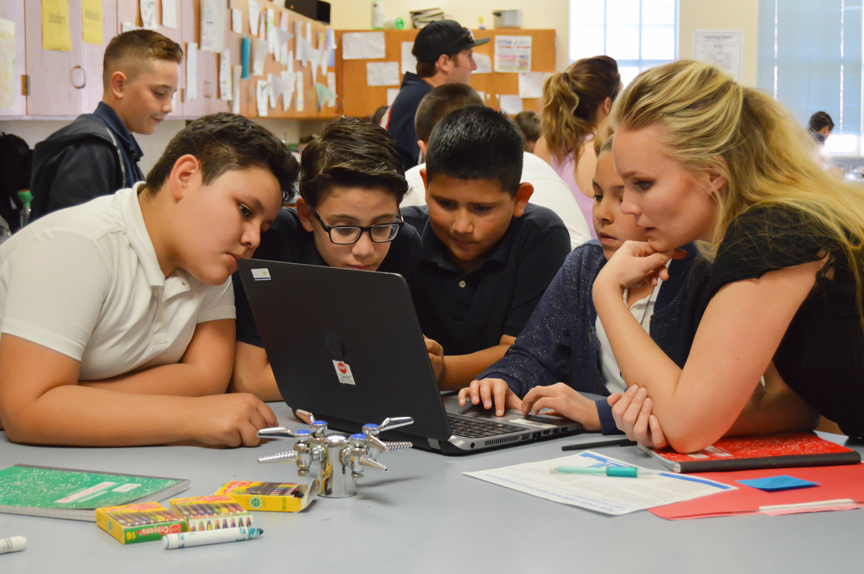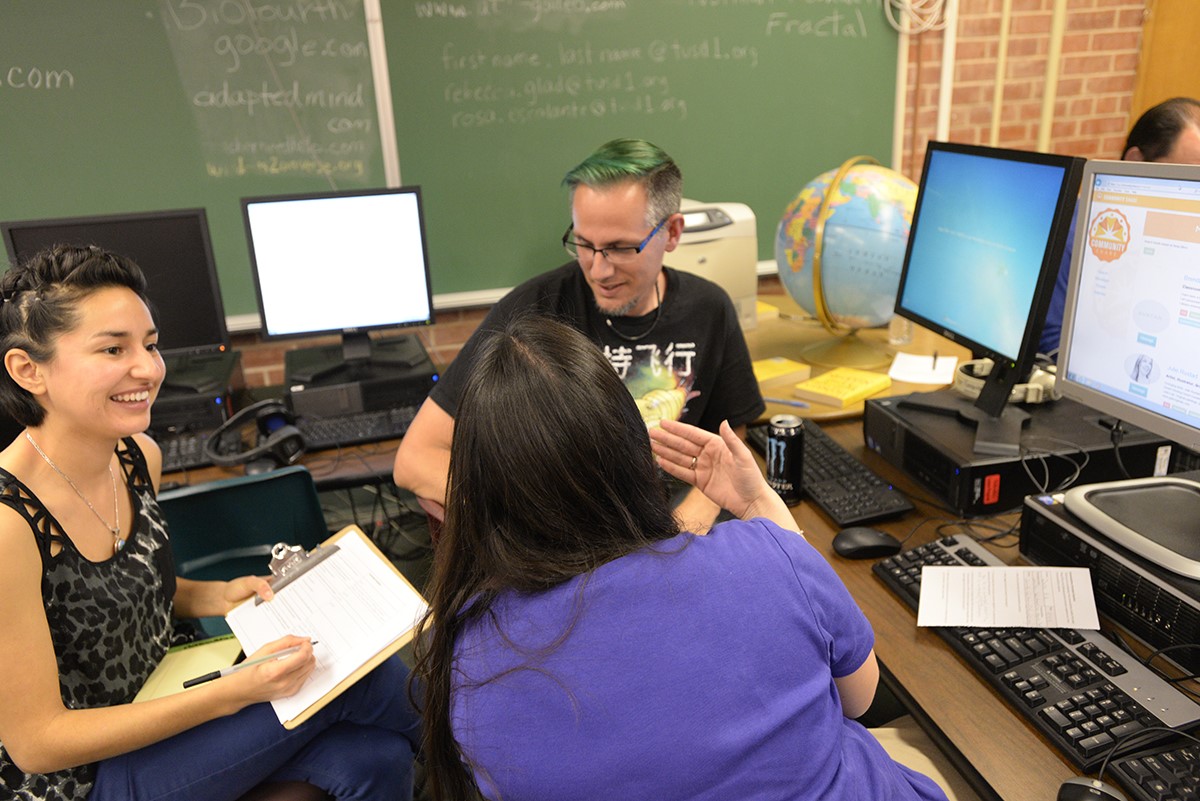Get involved as a Community Partner

Who inspired you when you were a kid or young adult? Imagine being that inspiration for a student in your community? What types of life experiences, skills and stories could you share? What might students be able to share with you?
CommunityShare connects you with educators and gives you the opportunity to help create real-world learning experiences with students.
Whether you can spend a few hours a year or a few hours a month, you can make a difference in a young person’s life. If an educator reaches out to you, you can make a plan with them that works for you. If you are wondering what other partners have done with students and educators, here are some examples.
Have questions about being a Partner?
Join our platform and start making connections with like-minded educators who need your help delivering real-world learning opportunities to their students.
Join our community as a partner in minutes by sharing a bit about your professional and life experiences.

If your experiences match a teacher’s needs, they will send a message to your email through our platform. If you are interested you and the educator can then find a time to plan together.
Not sure what to expect?

There’s no standard time commitment required for activities organized through CommunityShare. The needs of each teacher and classroom are different. Some need a one-time guest speaker for an hour, others could benefit from 4-6 hours on a larger one-time project, or several hours a week on a semester-long program. All we ask is that when you commit to a plan with a teacher, you do everything in your power to stick with that commitment. A lot of energy goes into lesson planning, and teachers (and their students) are depending on you to follow through on your side of the deal.
We get it. Not every opportunity or situation is a good match. It’s important that teachers and partners are open and honest with their availability and set clear expectations early in the process. It’s okay to say “no.” If an activity just isn’t right for you, or the timing is off, politely decline the offer and find something that feels like a good fit. It’s more important that you commit to the right opportunity than it is that you say “yes” to the wrong one.
Not everybody gets paid time off work, even for things as important as helping educate our community’s kids. But students are always students, even when they’re not in class. Consider looking for after-school programs, extracurricular groups, youth clubs, or even online remote opportunities to connect with teachers and students. Or, see if your workplace is willing to host a class for a field trip. You might be surprised at the answer!
You’ll be surprised what students need and want to learn from you… we almost always are! You might go in thinking you’re going to talk about your career as an accountant, only to find out later that the teacher has never seen a student connect with somebody more than they did with you… over your shared love of gardening. We encourage you to look at all parts of your life when thinking about what you can contribute to students of all ages.
Glad you asked! Here are some suggested questions to start your conversation. Remember, you are co-planning this interaction together. You can and should voice your own ideas and expectations to make sure that the teacher understands how to make your visit most worthwhile.
Classroom Experience
- What age group do you teach?
- Do you have any helpful hints for working with this age group?
- How many students do you have in your class?
Goals
- What are your goals? My goals for our experience working together are…
- What do you want students to learn and experience?
Activity/Collaboration
- Do you have some initial ideas about how you might like me to share my expertise or experiences?
- Were you thinking of a talk or an interactive exercise?
- Can we brainstorm what this interaction between the students and me might look like?
- How can I share my experience and knowledge in ways that are most accessible to the students?
Student Preparation
- To what extent will your students be familiar with the topic I will be presenting about?
- Have they done any activities that I can reference or build upon?
- Will they have questions prepared for me beforehand?
- What are you hoping the students get out of the experience?
Scheduling
- When would be the best time to schedule a visit to your class? Offering your typical schedule can be helpful, such as “My schedule is open on most Thursdays.”
- How long are your class periods?
Logistics
- Does your school have a check-in process for visitors or other requirements that I should be aware of when I come to your classroom?
- Where should I park? Where should I meet you when I arrive?
- How is your classroom set up? Do you have access to technology (projector, sound, etc.)? Can you send a photo of your room setup?
- Is there anything else I should know about your class?
- Will the students be wearing name tags?
Teacher Role
- How do you see your role during my visit?
- Will you introduce me?
- What if I have a concern about student behavior? How would you like me to handle this?
So, you’ve found an opportunity that fits for you, the teacher and the students. What do you need to know and do to prepare for it?
Preparation
- After you talk to the teacher’s goals for your visit, give yourself enough time to think about what you want to say and do with the students.
- Talk through your plan with the teacher, colleagues, or others.
- Make sure you’ve confirmed the check-in process with your teacher.
- Allow yourself plenty of time to find the school, park, and check-in at the classroom.
During the Interaction
- Speak from your heart: Share your passion for the topic. It’s ok to be a little nerdy about your subject!
- Share Stories: If it fits with the teachers’ goals, share your own life and career stories in relation to the topic at hand. Stories of failures, challenges, successes and surprises are great!
- Bring Visuals & Props: When possible, bring in photos, equipment, and things the students can touch and use relevant to your topic.
- Interactive/Hands-On: Consider ways to make the learning experience interactive and fun. Ask the students questions. If you use a PowerPoint, use it to show – avoid a lecture style approach.
- Humor: You don’t have to be a stand-up comedian, but appropriate humor is a good way to connect with students.
- Age Appropriate: Consider the age of the students you will be talking to when you are preparing for your visit. Ask the teacher for guidance about your ideas.
- Q & A: Allow time for questions at the end and throughout your visit.

